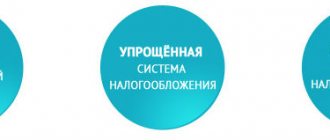The simplified taxation system was less fortunate than other special regimes in terms of the transition to new-style cash register equipment. If for some subjects a special deferment was provided for UTII and PSN, then legislators for some reason deprived it of payers of the simplified tax system. However, later preferences were given to all individual entrepreneurs who met certain requirements. Let's figure out how things are now: when is an online cash register for the simplified tax system needed, and who can do without it for now. We will also look at the new rules for using cash registers.
Online cash registers and reform
Since 2020, the Government has been carrying out a cash reform, in connection with which the law regulating this area No. 54-FZ of May 22, 2003 has radically changed. In the course of this, absolutely everyone who pays the population must sooner or later switch to online cash registers. No exception has been made for individual entrepreneurs on the simplified tax system. Now only a small part of entrepreneurs without employees have not yet installed such cash registers, but otherwise the reform has been completed.
Online cash registers are devices that are equipped with a digital memory module - a fiscal drive. It stores information about checks and reports generated by cash registers, and also transmits it to the Federal Tax Service server. To do this, the cash register must be connected to the Internet. Information about sales is sent to the tax service immediately at the time of their completion. Thanks to this, the Federal Tax Service can control the amount of revenue and ensure that business entities pay taxes in full.
But the reform affected not only cash registers as such. The concept of calculation has changed significantly. Previously, everything was simple - cash registers were used when accepting cash. Now, much more often we have to think about whether a cash register is needed in a particular case. The fact is that settlement is now considered to be any operations that are carried out in connection with the acquisition of goods (services, works), including:
- transfer, offset or return of prepayment (advance payment);
- sales on credit, provision of a loan for the purchase of goods or services, as well as its repayment;
- acceptance of some property from citizens for a fee (for example, scrap metals and other recyclable materials);
- return of goods (refusal of services) and payment of its cost;
- providing or receiving other consideration for goods, works, services.
In addition, a cash register for an individual entrepreneur or company is now necessary not only for cash payments. When transactions are carried out with individuals using a bank card, account or electronic wallet, checks also need to be generated.
As for other entrepreneurs and organizations, CCT is also sometimes used when making payments to them. This is necessary if the payment is made in cash or by presenting a bank card for payment. Such settlements between legal entities/individual entrepreneurs can be made within the limit of 100 thousand rubles within the framework of one agreement.
Free tax consultation
How to conduct cash transactions as an individual entrepreneur
It is the movements of cash that are cash transactions, and their documentation is called accounting for cash transactions.
In 2014, Directive of the Central Bank of the Russian Federation dated March 11, 2014 No. 3210-U came into force, canceling the previously existing Procedure for conducting cash transactions with banknotes and coins of the Bank of Russia on the territory of the Russian Federation (Central Bank Regulation No. 373-P dated October 12, 2011) . Now the entrepreneur has the right to keep records of cash transactions in accordance with a simplified procedure.
In fact, for individual entrepreneurs, the formation of a payroll (or payroll) statement when paying salaries and other remunerations to hired employees remains a mandatory requirement.
An individual entrepreneur should not set a limit on the balance of money and maintain a cash book. An entrepreneur can also keep part of the documentation in electronic form (however, during an audit, the documents will still have to be printed).
Back to contents
Accounting tasks
Actually, the general procedure for cash transactions consists of the movement (reception and issuance) and storage of cash, execution of relevant documents, as well as cash audits and compliance with cash discipline.
The objectives of accounting are complete and accurate control over funds (movement and safety), their intended use, as well as compliance with cash discipline.
Since some transactions require only cash, the enterprise creates cash registers and organizes appropriate accounting. Despite the fact that cash management is simplified for entrepreneurs, the tasks of cash accounting for successful business do not lose their relevance.
Back to contents
Organization of accounting
All cash must be stored in a specially equipped cash register, which must be locked, and the key to it must be kept only by the cashier (a duplicate with the manager).
Only business-related funds and valuables can be stored in the cash register; it is prohibited to store personal money and valuables in it.
The entrepreneur himself is responsible for safety, and he must conclude an agreement on full financial responsibility with the cashier or the person replacing him and has the right to enter into an agreement with security and insurance third-party organizations.
The cashier is responsible for issuing and receiving funds from and to the cash register, as well as for maintaining relevant documentation; in the event of his absence for any reason, the person replacing him, the chief accountant or manager.
If there are several separate structural divisions with their own cash registers, then a separate employee must be responsible for each, and all of them must report to the senior cashier of the enterprise.
According to the law, cash registers must be used to carry out cash transactions, but the peculiarity of accounting for entrepreneurs is that they may not use such equipment in their activities.
Back to contents
Rules for the simplified tax system
The simplified system is used by many small businesses in the service and trade sectors. It has virtually no restrictions on the types of business it operates (there are exceptions, but they are few) and operates in all regions of Russia. This favorably distinguishes the simplified tax system from UTII and the purchase of a patent, which are not suitable for any activity and are introduced at the regional or municipal level.
A significant disadvantage of the simplified tax system was associated with online cash registers. When the authorities decided that everyone should install a modern cash register, a deferment was provided for individual entrepreneurs on a patent and entities on UTII. Its duration depended on the activity (trade or services), as well as the availability of workers. But individual entrepreneurs and small businesses that use the simplified system initially did not receive such a deferment. They were obliged to switch to CCP within the general time frame:
- from July 1, 2020 - if they work in trade;
- from July 1, 2020 - if they provide services to the public by issuing printed strict reporting forms (SSR), but at the same time accept payments via the Internet;
- from July 1, 2020 - if they provide services only under SSO.
But payers of the simplified tax system were deprived of more than just this. In order to reduce the costs of small businesses, legislators approved a tax deduction in the amount of 18,000 rubles for each unit of cash register for entrepreneurs on UTII and a patent. Such individual entrepreneurs without employees who installed cash registers in 2019 (before July 1) can still use it. But the simplified tax system did not provide such a preference for entrepreneurs - they had to install cash registers at their own expense.
Trading on the simplified tax system
As you can see, there are very few situations in which an individual entrepreneur using a simplified approach can conduct retail trade without using a cash register. If your buyer is an individual, a cash receipt must always be issued to him, with the minor exceptions mentioned above.
If you are planning to engage in wholesale trade, then this direction assumes that your customers have the status of a business entity. In this case, the best option for settlements without using cash registers is payments through a current account. An online cash register for individual entrepreneurs is not needed for non-cash payments with such counterparties.
Introduction of deferment for individual entrepreneurs
On June 6, 2020, Law No. 129-FZ was adopted, by which legislators provided entrepreneurs with a deferment from using cash register equipment until July 1, 2021. All entrepreneurs (including individual entrepreneurs on the simplified tax system) without employees received it, provided that they:
- are engaged in the provision of services or performance of work;
- They sell what they make with their own hands.
If such an entrepreneur hires an employee, he is obliged to buy a cash register within 30 days and register it with the tax service.
Thus, an individual entrepreneur on a simplified basis without employees in 2020 has the right to work without a cash register. But only on the condition that he does not resell goods. The deferment is valid until mid-2021. After this, a cash register for individual entrepreneurs on the simplified tax system will become a necessity.
Changes in cash discipline due to the introduction of online cash registers
With the use of online cash registers, the need for some reporting forms has disappeared. The data is stored in the memory of cash register equipment and can be retrieved at any time for control. For persons using a new type of cash register, information is provided on reducing the requirements for the use of forms.
According to clarifications provided by the Ministry of Finance, the forms of primary accounting in trade, established by Resolution of the State Statistics Committee of December 25, 1998 No. 132, are not mandatory for use by enterprises that have switched to the new procedure for using cash registers. The new order refers to the use of online cash registers.
Deputy Director of the Department V.A. Prokaev (Letter of the Ministry of Finance of the Russian Federation dated September 16, 2016 No. 03-01-15 / 54413)
Important! Forms of settlements using cash registers Nos. KM 1-KM 9 approved by Resolution No. 132 may not be used in accounting for transactions.
BSO from July 2020
We have already noted that individual entrepreneurs from the service sector could previously work with BSO printed in printing houses. Many took advantage of this opportunity, thereby delaying the installation of the CCP. Is a cash register needed for individual entrepreneurs using the simplified tax system in 2019 if they provide services, or can they continue to use BSO? Unfortunately, from July 1, they must be formed using special cash register equipment, which is called BSO-KKT.
BSO and cash receipt are equivalent fiscal documents for the service sector. That is, the same requirements apply to the form as to a check. Namely, it must contain all the details that are listed in Article 4.7 of Law 54-FZ, and the information reflected on it must be sent to the Federal Tax Service at the time of calculation.
For individual entrepreneurs using the simplified tax system in 2020, the question became relevant: how to form a BSO after July 1? By the second half of the year, there was not a single special BSO-KKT in the cash register register for printing such forms. The solution turned out to be simple - buy a regular cash register and issue checks to customers instead of issuing BSO.
However, individual entrepreneurs without employees who have received a temporary deferment from CCP can still issue paper forms of strict reporting. At least, we found this answer on the Federal Tax Service website.
How to confirm the fact of payment when exempt from cash register
So, we found out that in most cases a cash register is needed for UTII. In this case, a cash receipt is issued to the buyer or client to confirm payment. What should those individual entrepreneurs without employees who received a deferment from the CCP do? What document should they issue?
On the Federal Tax Service website we found the following answer: “It should be noted that from 07/01/2019 to 07/01/2021 for individual entrepreneurs who do not have employees (with whom employment contracts have been concluded), when selling goods of their own production, as well as performing work and providing services, the legislation of the Russian Federation The Federation on the use of cash register systems has been granted the right not to use cash register equipment when making payments for such goods, works, and services. In other words, such individual entrepreneurs may not use cash register systems during the specified period and issue BSOs that meet the requirements of Decree of the Government of the Russian Federation dated May 6, 2008 No. 359.”
However, this answer does not describe cases when payment for services is made to the bank account of an individual entrepreneur or online. After all, in this case there is no personal contact with the client and it is impossible to give him a paper BSO. In addition, the advice to issue BSO when selling goods of your own production seems strange, because the strict reporting form is intended only for payment for services. We recommend that our users in such situations contact their Federal Tax Service for clarification.
Exempt activities
Speaking about when an online cash register is needed for individual entrepreneurs on the simplified tax system, one cannot fail to mention paragraph 2 of Article 2 of Law 54-FZ. It lists business areas that are completely exempt from the use of cash registers. It does not matter whether they are carried out by an entrepreneur or an organization, as well as what tax system is chosen.
So, you don’t have to issue checks to customers if the individual entrepreneur sells:
- “paper” magazines and newspapers, and along with them other goods (they must be included in the list approved by the regional authorities) in kiosks, but provided that printed periodicals account for at least half of the turnover;
- goods at markets, fairs, exhibitions (except for trading places that ensure the safety of goods);
- peddling food and non-food products (except for those that are technically complex, subject to labeling and require special storage conditions) from hands, carts or baskets;
- ice cream at the kiosk;
- milk, soft drinks, bottled water;
- kvass, milk, vegetable oil, fish, kerosene from tanks;
- vegetables and fruits in ruins;
- handicrafts of own production;
- shoe covers.
In addition, an individual entrepreneur using the simplified tax system without a cash register can engage in the following activities:
- providing food to educational institutions during classes;
- renting out your own housing, including with a parking space (strictly for individual entrepreneurs, not suitable for organizations);
- acceptance of recyclable materials from the population, except scrap metals and precious stones;
- shoe repair and painting;
- production of keys and other small metal products;
- caring for the elderly and sick;
- babysitting;
- gardening work;
- porter services.
Also, in accordance with paragraph 14 of Article 2 of Law 54-FZ, an individual entrepreneur on the simplified tax system without a cash register can sell entrance tickets and subscriptions to state and municipal theaters. But only on condition that they are sold privately. If the sale is made via the Internet, then a cash register must be used.
Which individual entrepreneurs on UTII are completely exempt from online cash register?
A cash register with an “online” function is not required for businessmen in the cases established by Art. 2 No. 54-FZ.
| Sale of certain goods and certain types of trade | Scope of provision of services to citizens |
|
|
In addition to entrepreneurs providing the above services, the following are exempt from online cash register:
- Individual entrepreneurs on UTII, carrying out supplies and trade in remote settlements, in hard-to-reach areas (the list of small settlements is created by regional authorities);
- Individual entrepreneurs on UTII working in places difficult to reach for communication must issue a BSO.
Exemption for some areas
They do not use cash registers for individual entrepreneurs on the simplified tax system, which operate in remote and hard-to-reach places. Lists of such settlements are compiled by regional authorities. Thus, business entities from rural areas should find out the status of their settlement in order to decide whether a cash register is needed. Perhaps it is considered difficult to access - then you don’t need to use CCP.
Instead of a check in this case, at the buyer’s request, any document generated on a computer or written out by hand should be issued. It reflects the serial number and most of the details that should be on the cash receipt. Including the date, time and address of payment, the name of the seller and his Taxpayer Identification Number (TIN), the taxation system, the sign of payment (for example, receipt or return), name of the product, its amount and others. The document must be recorded in a special journal by number and settlement date.
A relaxation has also been made for those located in areas remote from communication networks. These are not such hard-to-reach places where it is difficult to install equipment, but there is no Internet there. An online cash register for individual entrepreneurs on the simplified tax system from such a locality is needed, but it can be used offline, that is, without transferring data to the Federal Tax Service. However, they must be stored on the fiscal drive. Similar rules are prescribed for those who are located on the territory of military or protected certain other objects.
Which online cash register to buy for individual entrepreneurs using the simplified tax system?
In order not to overpay for unnecessary functions or, conversely, not to find an unpleasant surprise in the midst of work, when choosing a cash register, take into account the characteristics of your business - the stationary or traveling nature of the work, as well as the flow of clients.
Small flow of clients
If you issue up to 20 checks per hour, then a smart cash register with a bunch of features is not needed. Save money and buy a simple cash register.
Autonomous cash register ATOL 91F
from 8,000 rub.
Simple cash register with buttons. There is no need to buy additional equipment for it. You can add a product to a receipt in two ways: enter the product article or connect a barcode scanner.
Suitable for both stationary and mobile use, as it can work without recharging for up to 8 hours.
Fiscal registrar ATOL 30F
from 11,000 rub.
It only works in conjunction with a tablet or computer, as it does not have a display or keyboard. All data is taken from the commodity accounting system installed on a computer or tablet. Designed for a small flow of customers, as it prints receipts slowly and does not have automatic tape cutting. Suitable for working with EGAIS.
Medium and large flow of clients
If you have frequent clients, you need to speed up the issuance of checks. A push-button cash register is not very suitable for this, so pay attention to models with a display - they are more convenient to work with.
Smart terminal EVOTOR 7.2
from 11,700 rub.
A cash register, which is a touch tablet with a 7-inch display and a built-in fiscal recorder. Allows you to add and store the range of your products, set prices, and also maintain inventory.
The functions of the terminal can be expanded using the application store and connecting additional equipment: scales, bank terminal, barcode scanner, cash drawer, etc.
STRIKE-LIGHT-01F
from 16,900 rub.
Fiscal registrar for organizations with medium and medium-high sales point traffic.
A powerful processor, a reliable automatic cutter and a high-speed printing mechanism will significantly increase the speed of service. Works in conjunction with a PC or tablet; manual entry of goods is not required.
Traveling trade
Those who constantly carry a cash register with them should pay attention to mobile options for online cash registers, which can work for a long time without recharging.
Mercury-180F
from 5,450 rub.
Portable and one of the cheapest online cash registers for individual entrepreneurs. It has the smallest dimensions among “autonomous” devices - the weight of the device is only 390 grams. On one battery charge it can work for about three days in standby mode or run up to 500 checks.
ATOL 15 F
from 7,000 rub.
Mobile fiscal registrar. The most compact device in its class. Weight when fully equipped is only 186 grams. The built-in battery provides up to 12 hours of operation when punching a check once every 15 minutes. Comes with a convenient carrying case for various carrying options.
Cash desk with acquiring Evotor 5i
from 23,300 rub.
An autonomous cash register, combined with a bank terminal, accepts cash and all types of bank cards, as well as Alipay, Apple Pay, Samsung Pay, Google Pay. The operating time from the built-in batteries is up to 12 hours. You can expand the capabilities of the cash register using the application store.
For a complete catalog of cash registers, see the Online cash register section. If you are in doubt about your choice, we recommend that you seek advice from our managers. They will help you navigate the assortment.
Let's sum it up
So, we considered the need to use online cash registers for individual entrepreneurs on the simplified tax system and found out that entrepreneurs without employees from the service sector have a deferment. They may not install cash registers in 2020, but this will need to be done by July 1, 2021. Those who produce goods themselves and then sell them have the same right. But all these entrepreneurs are required to supply cash registers if they hire at least one employee.
But in the field of trade, cash register equipment is used by individual entrepreneurs on the simplified tax system without any additional preferences or delays. The exceptions are shops in remote settlements, sales in markets, peddling, bottling, as well as trade in certain types of products from tanks and in kiosks.
How to choose the right cash register
The requirements for cash register equipment are regulated by Federal Law No. 54 of May 22, 2003 “On the use of cash register systems when making payments in the Russian Federation.” You need to purchase only those devices that are included in the approved list.
Individual entrepreneurs without employees - do you need an online cash register for UTII, USN, OSNO
The list includes touch and push-button online cash registers. The latter make up the budget segment, but not every model can interact with additional equipment. When choosing a CCP, it is recommended to familiarize yourself with the following characteristics:
- mobility so that you can place it anywhere;
- options when working with the database;
- throughput;
- Internet connection options.
The device must meet the requirements:
- have a case with a serial number placed on it, equipment for printing receipts;
- generate fiscal documents in electronic format;
- be able to print a report on the current state of settlements if required by regulatory authorities;
- be equipped with software.
Important! Items of goods must be loaded into the device. This is done manually using the interface. But, if the assortment includes over 50 items, it is easier to enter them through special software.
The Kassatka device has a touch screen
What important changes await us in 2020
Some individual entrepreneurs were indeed exempted from using online cash registers until mid-2021. But this does not apply to everyone.
For now, entrepreneurs who:
- offer people goods produced independently;
- perform services or work themselves.
As soon as the first hired employee appears under an employment contract, everything will have to be redone within 30 days. It doesn’t matter whether it is urgent or has no expiration date.
In addition, anyone who would have to sell labeled products, even if they produced them themselves, was excluded from this list. Everything that is already under state control must remain there, so it is important that at any time it is possible to trace the path of each product from the factory to the final consumer.
But it is allowed not to use the online cash register for peddling outside pavilions and trays for now. In this case, you can trade everything that does not relate to technically complex goods and those products that require special storage conditions. Also, this does not include those things that undergo mandatory marking by means of identification. They will not be allowed to carry anything for sale on trains or planes.
Other payment options
Before numerous changes were made to the law “On cash registers,” a cash register receipt was issued when paying in cash or by card with personal contact between the seller and the buyer, so the question of whether an online cash register was needed did not arise.
Everything was relatively clear. But now new situations have been added to these options, for which a cash receipt has become mandatory:
- when paying online by credit card;
- when making payments through an electronic wallet;
- when paying through payment services that combine different types of payment, for example, Yandex checkout;
- when transferring through online banking;
- when paying from mobile phone accounts;
- through a bank terminal.
Moreover, it is necessary to use cash register systems not only when receiving online payment for goods, but also when the consumer pays remotely for services. The Ministry of Finance explains this requirement by the fact that a paper BSO cannot be issued in the absence of contact between the contractor and the customer, so it must be replaced by an electronic cash receipt.
Another situation in which a cash receipt was not previously issued is when an individual pays for a product or service to an individual entrepreneur’s bank account. Moreover, if an individual transfers money to a current account using an electronic means of payment (for example, from his account through an online bank), then a cash receipt will be issued as of July 1, 2018. And if payment to the individual entrepreneur’s current account is made in cash through an operator at the bank, then the deferment for the use of cash registers is valid until July 1, 2020.
What will happen to those individual entrepreneurs who do not supply the cash register?
If the entrepreneur disobeys, sanctions will be applied to him. What they will be appointed for:
- for the lack of a cash register in cases where it is needed;
- for outdated or non-working equipment;
- for an unregistered device;
- for the absence or failure to issue a receipt to the buyer or customer.
What is the fine?
How much will you have to pay:
- failure to issue a document confirming the fact of sale – 2000 rubles for each recorded time;
- if you do not use cash register, then from 25 to 50% of the purchase amount, but not less than 10,000 rubles.
If the violation was detected for the first time, and the individual entrepreneur has never been noticed in this way before, the tax service may issue a warning. If a violation is detected again, they will force you to pay.






